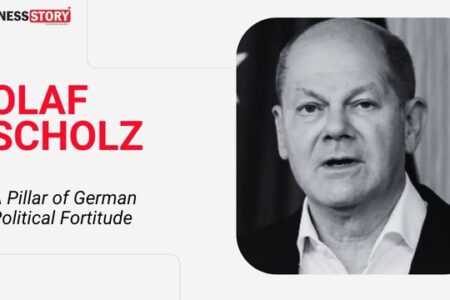Olaf Scholz, born on June 14, 1958, stands as a formidable figure within German politics, wielding profound influence as the Chancellor of Germany. This article presents an expansive exploration of Scholz’s life, career trajectory, and the profound reverberations of his leadership, offering nuanced glimpses into his personal realm.
Early Life and Academic Pursuits
Hailing from Osnabrück, Lower Saxony, Germany, Olaf Scholz embarked on his intellectual odyssey at the University of Hamburg, where he immersed himself in the realms of economics and law. His formative years were shaped by an indomitable spirit of inquiry, fostering a deep-seated understanding of economic dynamics and legal intricacies.
Political Forays and Ascendancy
Transitioning from the hallowed halls of academia to the crucible of politics, Scholz’s meteoric ascent commenced with his tenure in the Hamburg state parliament, spanning from 2002 to 2011. His astute leadership and unwavering commitment propelled him through the echelons of the Social Democratic Party of Germany (SPD), charting a trajectory imbued with promise and potential.
Federal Foothold and Party Leadership
The annals of German federal politics beckoned Scholz in 2005, as he assumed the mantle of a member of the Bundestag, heralding a tenure characterised by a steadfast focus on fiscal policies and economic imperatives. His ascendancy within the SPD crystallised with his pivotal roles as the party’s deputy chairman and Secretary-General, emblematic of his burgeoning influence and stewardship.
Chancellorship and Policy Paradigms
A watershed moment in Scholz’s political odyssey materialised in September 2021, as he ascended to the Chancellorship of Germany, succeeding the indomitable Angela Merkel. His tenure heralded a seismic shift in German politics, with the SPD assuming a pivotal role within a coalition government alongside the Greens and the Free Democratic Party.
Steering the ship of state with finesse and foresight, Scholz’s administration charted a course defined by:
- Economic Renaissance: Scholz’s government spearheaded an economic revival in the wake of the COVID-19 pandemic, marshalling resources towards infrastructure revitalisation, educational reform, and digital innovation.
- Climate Imperatives: With an unwavering commitment to combating climate change, Scholz’s administration set ambitious targets for reducing greenhouse gas emissions, ushering in an era of environmental stewardship and renewable energy proliferation.
- Diplomatic Resolve: Scholz emerged as a fervent advocate for robust European collaboration, underlining Germany’s pivotal role in global diplomacy and crisis management.
- Domestic Renaissance: Prioritizing social welfare and healthcare reform, Scholz’s administration endeavoured to tackle societal inequities, ensuring equitable access to housing and education for all citizens.
Personal Panorama
In the intimate sphere of personal life, Scholz finds solace and support in his union with Britta Ernst, a fellow luminary within the SPD ranks. Their shared journey is adorned with the blessings of parenthood, exemplifying a harmonious blend of personal fulfilment and professional pursuit.
Conclusion
Olaf Scholz’s stewardship as the Chancellor of Germany embodies a confluence of pragmatism, vision, and resolute leadership, galvanising the nation towards a future defined by prosperity, sustainability, and inclusivity. As a beacon of fortitude within German politics, Scholz’s legacy reverberates across the annals of history, positioning him as an architect of transformative change and enduring progress.

